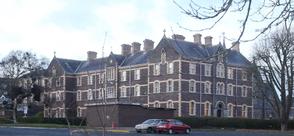Leslie Keegan: There Must Be an Apology to the Magdelen Laundry Survivors and Appropriate Redress
Irish Independent
IN June 2011 the United Nations Committee against torture in its 46th Session criticised Ireland for failing to protect girls and women who were involuntarily confined between 1922 and 1996. It also criticised Ireland for its failure to regulate and inspect the operations of these institutions where it is alleged that physical abuse, emotional abuse and other acts of ill-treatment were committed. It recommended that Ireland should introduce prompt, independent and thorough investigations into all complaints of torture and other cruel, inhuman or degrading treatment or punishment committed in the Magdalen Laundries. In appropriate cases it should prosecute and punish the perpetrators. It also recommended that the State should ensure that all victims obtain redress and have an enforceable right to compensation. This led to the setting up of the McAleese Inquiry which has resulted in the publication of a 1,000 page report. The women, an estimated 10,000 between 1922 and 1996, came via a variety of routes - including the criminal justice system, homes where they were abused or because they had more than one child out of marriage. These are only some of the ways in which vulnerable women came into these institutions. They were confined in these institutions, had their names changed, were worked like slaves not paid and abused. They were exploited by the institutions and by the State. Evidence in the National Archives indicates that the State had a responsibility towards these individuals and how they were treated: • The Department of Local Government and Public Health Annual Report, 1932/33 details the State’s reliance on Magdalen Laundries to serve women who gave birth to more than one child outside of marriage. • The State’s judicial system routinely referred women to Magdalen Laundries and other religious homes from the 1920s to the mid-1960s. The Cussen Report in 1936 indicated that there was no statutory basis for this arrangement and the State never informed the women in the laundries of this fact. • The Department of Justice introduced the Criminal Justice (Female Offenders) Bill, 1942 to provide legal sanction to this arrangement. • The Criminal Justice Act 1960 provided for the use of the Sean McDermot Street Magdalen Laundry as a Remand home. The Department of Finance agreed to pay capitation grants for every woman so referred to the institution. The report confirms that Department of the State, public bodies, large hotels in Ireland and other State run institutions used the services of these laundries. It also confirms that some women were removed to these homes on an ad hoc basis by Gardai where for instance they were homeless and required temporary accommodation. There are also those that died without proper registration. The report goes some way towards explaining why the committee was unable to confirm death certification in approximately 14% of the 879 deaths that occurred in these premises. It explains that some women were admitted under a single name only; in other cases there may have been variations of a first name such as ‘May’ for ‘Mary’. In other cases, there may have been variation of a second name such as substitution of ‘Connor’ for ‘O’Connor’ whereas in other cases the death may have occurred in an area other than that where the laundry was located. In 1993 when the land at High Park, Drumcondra, Dublin was being sold by the Sisters of Our Lady of Charity to a property developer, they applied for a licence to exhume 133 bodies from the land surrounding the convent. The undertakers carrying out the exhumations stopped work when the remains of an additional 22 women were found. A further exhumation licence was granted to take out “all human remains”. Death certificates were provided in only 75 of the cases covered by the initial exhumation licence. The General Register Office issued “no trace” forms for 34 other cases and said it could not conduct a search of the remaining 24 as insufficient details were provided. It appears that in the case of the 34 “no trace” women that the statutory registration procedures were not complied with at the time of the deaths. In relation to the remaining 24 women only one was referred to by her first name. The rest were identified only by a religious name such as Magdalene of St Theresa or Magdalene of Lourdes. In relation to the additional bodies the department said it only had a record of 14 additional remains. The department did not seek additional information for the extra licence. Nor did the department make any recommendations or directions as to whether the bodies should be cremated or reburied. With no names or other personal details for these women, death certificates could not be issued. Although it is a criminal offence to fail to register a death which occurs on your premises, nobody has been prosecuted in relation to these offences. There must be a State inquiry into the unexplained deaths. There must be an apology to the survivors and appropriate redress. Given that there is now evidence that the State was directly involved in the confinement of these women who were treated appallingly, at the very least there should now be an apology from the State for their admission and confinement and they should be given appropriate redress. It is not sufficient for the Taoiseach to apologise for the fact that they were branded unfairly as fallen women and that the conditions were not good. It is important that there is an acknowledgement together with an apology for the fact that many of these women were admitted to these institutions by or on behalf of the State and that they should receive appropriate redress. It is all the more urgent because many of the survivors are now in their eighties.
|
.
Any original material on these pages is copyright © BishopAccountability.org 2004. Reproduce freely with attribution.
